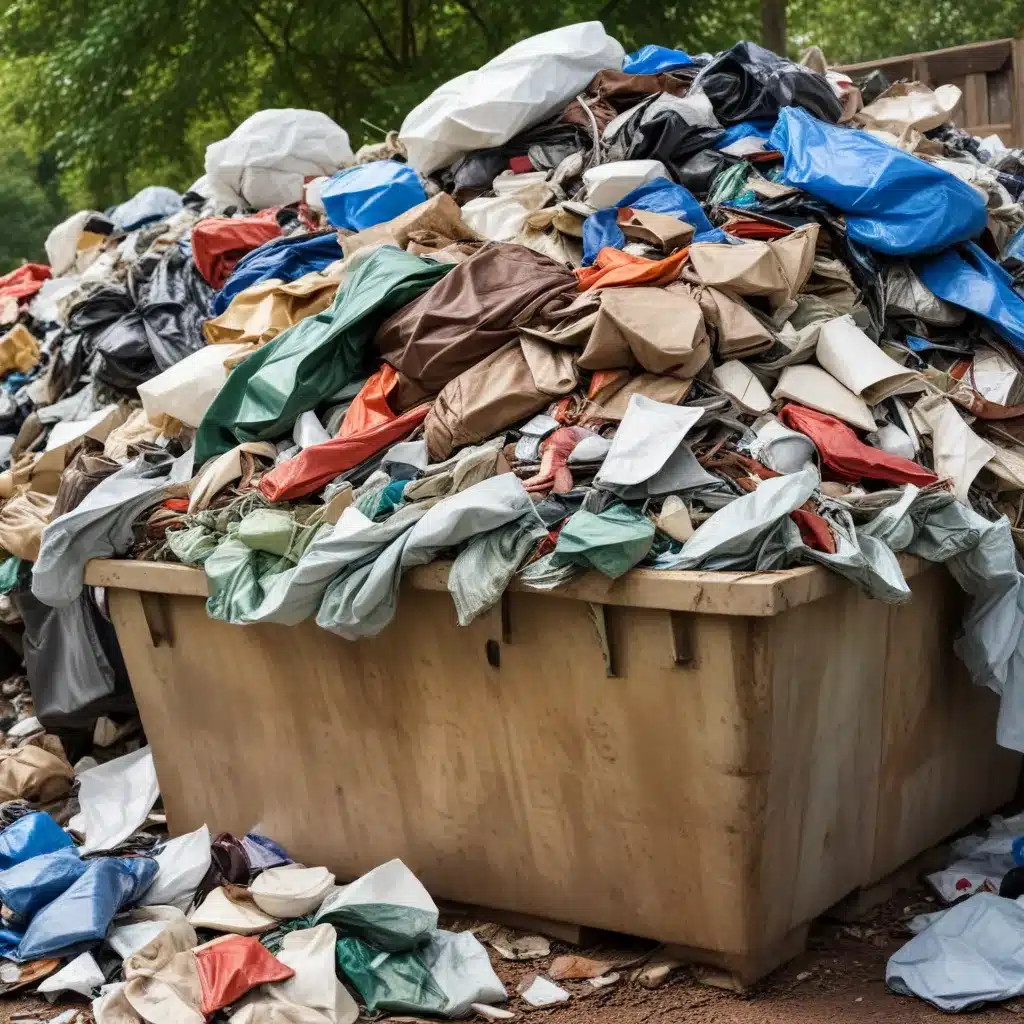
Embracing Eco-Friendly Junk Removal in Philadelphia
As an experienced junk removal specialist in Philadelphia, I’ve seen firsthand the transformative power of sustainable waste management practices. In this article, I’ll share my personal insights and experiences on the latest techniques, eco-friendly solutions, and industry trends that are revolutionizing the way we approach junk removal and recycling.
Rethinking Waste Management: From Landfills to Resource Recovery
Landfills, once seen as the necessary evil in waste management, can have disastrous environmental consequences. They disrupt the natural landscape, emit greenhouse gases, and contaminate soil and water resources. However, the tides are turning as we explore innovative ways to turn our trash into treasure.
One exciting development is the rise of waste-to-energy (WTE) technologies. By converting municipal solid waste into energy through processes like anaerobic digestion or incineration, we can prevent debris buildup in landfills and significantly reduce our carbon footprint. These WTE facilities are designed to minimize emissions and capture pollutants, ensuring that harmful substances don’t reach the atmosphere.
Moreover, waste can serve as a renewable energy source, reducing the reliance on fossil fuels and paving the way for a greener energy future. As a junk removal specialist, I’ve witnessed the transformative impact of these technologies firsthand, and I’m excited to see how they continue to evolve and integrate into our waste management infrastructure.
Unlocking the Power of Recycling and Resource Conservation
Recycling is the cornerstone of sustainable junk removal, and I’m proud to see the strides our community has made in this regard. Through effective pre-treatment processes, we can separate municipal waste into its various fractions, such as plastics, metals, and paper, and extract the valuable materials for further processing.
This not only reduces the amount of waste sent to landfills but also conserves natural resources and promotes a circular economy. As individuals, we can contribute to the success of these pre-treatment efforts by properly sorting and separating our junk, ensuring that as much as possible can be diverted from the waste stream and given a new lease on life.
Transforming Organic Waste into Energy and Soil Amendments
Organic waste, such as food scraps and yard trimmings, also holds immense potential when it comes to sustainable waste management. By harnessing the power of anaerobic digestion, we can turn these organic materials into biogas, a renewable energy source that can be used for cooking or electricity generation.
Moreover, the byproduct of this process, known as digestate, is a nutrient-rich organic fertilizer that can be applied to gardens and farms, enhancing soil health and fertility. This closed-loop approach not only reduces our reliance on fossil fuels but also supports sustainable agriculture and local food production.
I’ve seen the impact of these small-scale, on-site composting and anaerobic digestion systems firsthand, and I’m excited to see more homeowners and businesses in Philadelphia embrace this transformative technology. It’s a powerful testament to the fact that sustainable junk removal and waste management can be accessible and empowering for individuals and communities alike.
Navigating the Technological Landscape: Innovations in Waste Management
The academic and research community have been actively engaged in exploring the latest advancements in waste disposal and recycling technologies. From chemical recycling and waste-to-materials processes to smart grid integration and energy storage solutions, the possibilities for sustainable waste management are truly boundless.
These technologies, however, require rigorous testing and improvement before they can be adopted at scale. Integrating them into existing waste management infrastructure also poses compatibility and scalability challenges that must be carefully navigated. As a junk removal specialist, I’ve witnessed the delicate balance between innovation, safety, and environmental responsibility that must be struck to ensure the successful implementation of these cutting-edge solutions.
Fostering Collaboration and Policy Frameworks for Sustainable Change
Sustainable waste management is not a solo endeavor – it requires the collective effort of individuals, businesses, and policymakers. International cooperation frameworks can provide the financial support and technology transfer mechanisms necessary for scaling up these eco-friendly practices, while robust government policies and regulations can guide the implementation and encourage circular economy practices locally and globally.
As a junk removal specialist in Philadelphia, I’ve seen firsthand the power of community engagement and the impact of local initiatives. From small-scale composting projects to large-scale recycling programs, I’m constantly inspired by the way our community is rallying together to reduce waste, reuse materials, and implement self-sufficient waste management solutions.
Embracing the Future of Junk Removal: Trends and Opportunities
The future of junk removal is brimming with exciting possibilities. As more businesses recognize the value of reducing waste and embracing circular economy principles, we’re witnessing a shift towards eco-friendly practices that minimize environmental impact and create new revenue streams.
Chemical recycling and waste-to-materials processes are enabling the recovery of valuable resources from a wider range of waste materials, conserving natural resources and reducing the need for new materials. Small-scale anaerobic digesters and on-site composting facilities are also becoming more accessible, empowering individuals, small businesses, and communities to participate in green initiatives and contribute to sustainability goals.
As a junk removal specialist, I’m thrilled to be a part of this transformative journey. By harnessing the power of innovative technologies, fostering collaboration, and embracing sustainable practices, we can unlock the immense potential of junk recycling and turn our city’s waste into a valuable resource.
Conclusion: A Greener Future, One Junk Pile at a Time
The road to sustainable junk removal and waste management may not be without its challenges, but the rewards are undeniable. By embracing eco-friendly practices, leveraging cutting-edge technologies, and fostering community engagement, we can create a cleaner, greener Philadelphia that serves as a model for cities around the world.
As a junk removal specialist, I’m honored to play a role in this transformation. I invite you, the homeowners and businesses of Philadelphia, to join me in this exciting journey. Together, we can unlock the potential of sustainable junk recycling, turn our trash into treasure, and pave the way for a more sustainable future. Let’s get to work and make a lasting impact, one junk pile at a time.